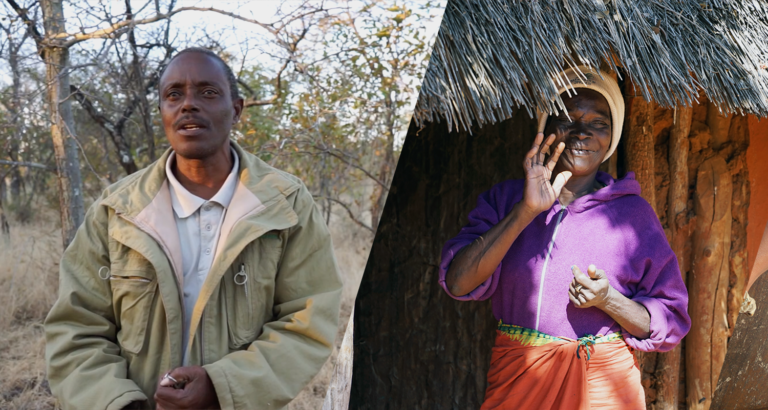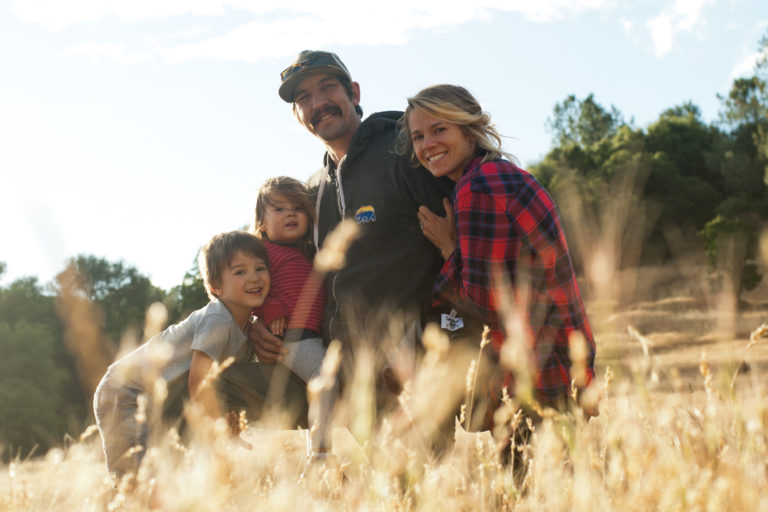Summarizing managing what is complex and the role of livestock in climate change.
I ended my last blog saying I would summarize why, if we are ever to address climate change seriously, it is absolutely vital that we manage what is complex holistically, and that we use livestock properly managed to restore desertifying lands to health. It is no exaggeration to say that the future of civilizations hangs on these two simple points.
Recap on causes of climate change.
As far as we know climate change is resulting mainly from excessive atmospheric carbon dioxide, methane, nitrous oxide and black carbon, and global desertification. There are still some who dispute the fact of climate change, but few who deny desertification on a global scale, as the evidence is undeniable.
The greenhouse gases are natural, but in excess become pollutants, so for brevity I will call them pollutants. Some recognize agriculture’s contribution to the greenhouse gases and almost all blame livestock for producing methane and causing man-made deserts (desertification).
Published figures on where the pollutants come from vary widely, so I will assume for my argument that about 50% come from fossil fuels and 50% from agriculture – destruction of soil, biomass burning and desertification. What is turning to man-made deserts is essentially the brown areas we see – most of our land area.

NASA
What do we need to do?
1. Stop adding carbon dioxide and the other pollutants to the atmosphere.
2. Remove the pollutants already there (the “legacy load”) to a safe place for storage for thousands of years.
3. Reverse desertification globally.
There is increasing awareness of the need to stop pollutants from fossil fuels reaching the atmosphere. There is little awareness of the need, or where to store, the pollutants already there (the legacy load). Only one nation (France) has even mentioned the most obvious storage place – the soil – at Paris COP21. There is increasing talk by some scientists of using technology and geo-engineering to decarbonize the atmosphere and to also cool the Earth.
Logically if we only solve the burning-of-fossil-fuels problem we can expect with the time delay in that taking effect, and the continued major contribution from agriculture and desertification, that climate change will continue. With agriculture losing over 75 billion tons of soil every year to erosion there is little hope of storing any gases, or breaking down methane in soil – the only safe place left to store them for thousands of years. Oceans are already acidifying and tree planting cannot do what is required as discussed in earlier blogs.
What do we blame most?
The general belief is that fossil fuels and livestock are the villains and there is rising public anger to this effect. Harvard students pressuring the administration wanting to divest its $36 billion endowment of shares in the top 200 publicly traded fossil fuel corporations; and an literally hundreds of celebrities promoting the vegan or vegetarian lifestyle to protect the environment.
Earlier blogs.
To date I have broken this complicated subject into digestible pieces in this order (with lowest number latest blog and highest earliest blog):
8. The single greatest leak in team humanity’s boat, making almost all other leaks worse as we sink.
7. Our inability to recognize the difference between what is complicated (everything we make using technology) and what is complex (human organizations and nature)

Everything on left does not involve self-organizing complexity. Everything on the right does and is thus defined as complex.
6. Why managing complexity is the primary issue for survival of civilization
5. Why humanity cannot manage what is complex successfully.
4, How we can manage what is complex in our lives, organizations and nature.
3. The missing tool – livestock properly managed – without which we cannot address climate change or desertification.
2. What does properly managed mean.
1. This summary
Now let me pull these together to summarize with regard to climate change.
Alternatives to fossil fuels
In a 2016 TED talk Al Gore talked of the encouraging advances in developing benign sources of energy to replace fossil fuels. Only by using technology can this necessary task be achieved, but once more we are making something -electricity from sun, wind, etc. – and not dealing with complexity.

What is complex that remains for us to be able to address climate change?
We still have to:
• Stop atmospheric pollutants coming from agriculture.
• Reverse desertification globally.
• Remove present atmospheric pollutants.
• Store excess pollutants in the only safe place we can for thousands of years – the soil.
• Reform the global finance system driving environmental destruction.
• Achieve a better-informed public so that the institutions and organizations that are blocking progress can change.
All of these aspects of the problem involve complex self-organizing systems and nature – managing what is complex as I started this blog series explaining.
Let me now summarize what we can do using the genetically embedded framework we, and all organizations, use. Business in our usual reductionist manner.
Genetically-embedded framework for decision making and policy development.
Remember, when using this framework as humans have done for centuries, we reduce the social, environmental and economic complexity (that cannot be avoided) to a problem to be solved. And we have only four categories of tools with which to manage nature’s complexity:
• Technology
• Fire
• Rest (non-disturbance)
• Living organisms (planting trees, etc.)
There are no other tools for managing ecosystems.
Using these four tools we can:
1. Stop pollutants from fossil fuels using technology to develop mass benign energy
2. Geo-engineer the removal of atmospheric pollutants and store them somewhere
3. Geo-engineer a way to cool the Earth.
(Geo-engineering is the deliberate large-scale intervention in the Earth’s natural systems to counteract climate change using technology.)
What else? I am afraid that is it.
Never yet has technology solved a major environmental problem without unintended consequences and geo-engineering will be no exception. No technology even imaginable in science fiction can reverse desertification globally, or simultaneously regenerate the world’s cropland soils. Using technology to plant trees or grasses as I pointed out earlier can never reverse desertification, because it does not address the cause – oxidation of the main soil-covering grass plants, necessitating use of fire, which many environmental organizations support. And vast areas of the world, far larger than the US, only receive less than 200 mm (8 inch) of rainfall – too low for trees to provide soil cover. Even using technology and fire to make biochar, one of the most promising ideas, is likely to work best in the limited regions of the world where humidity is constant and high – the regions that are not desertifying.
Once more, this is why we have no option but a better-informed public.
What can we do by adding properly managed livestock?

1. Decarbonize the atmosphere using safe storage in mainly the world’s grassland soils (which cover the largest area by far of earth’s landmass).
2. Reverse desertification globally while feeding people over vast problematic regions where 95% of the land can only feed people from animals and where annual rainfall is generally less than 200mm (8 inch).
3. Integrate livestock with regenerative (biologically based) crop production to regenerate agricultural soils.
4. Enable regenerating soil life to break down methane, which it does.
5. Use livestock grazing to replace the need for annually burning billions of hectares of grasslands.
6. And using technology we can stop adding pollutants from fossil fuels.
I could go on but that is enough to make my point and this table below illustrates the profound difference between relying on technology or opening our minds to the use of livestock properly managed.

Conclusion.
In this series of blogs I have tried my best to discuss in simple terms the most dangerous situation modern mankind has faced – more dangerous than all wars ever fought, more dangerous than even nuclear war. I have not found any place where we are even attempting to do so in a simple commonsense manner ordinary people or Nobel laureates can digest.
I believe most people think leadership will emerge – some politician, organization, institution – will come up with clear leadership and a clear way forward. This will not happen because our organizations are complex soft systems incapable of leadership, and incapable of change ahead of significant shifts in public opinion. Our celebrities being the good humans most are do their best to help the environment by being role models to their fans, but most of them are responding to the beliefs of, and pressure from, fans. What else explains such a high percentage of celebrities becoming vegans or vegetarians? When one of them, such as Leonardo de Caprio, or Brad Pitt, speaks out millions hear, cheer and share on social media. Major environmental organizations that could play such an important role do not do so because they too rely on public opinion sentiment and emotion for their funding from a public that mostly vilifies livestock.
Unfortunately I am not sufficiently known to reach the celebrities and millions of people who simply need better information because we act on what we know or believe. Most people are good and doing their best. Millions of people tweet, blog, post and share daily bits and pieces of the situation humanity faces. While doing good this also add to confusion in the public mind. .
We have all the money in the world, the one luxury team humanity and young generations do not have is time. I despair as I observe vegans fighting meat eaters with well-meaning celebrities fueling the flames. I despair as I watch arguments about how much methane cows produce, or carbon grasslands can absorb – while our ship is sinking and good people re-arrange the deck chairs. Even if cows produced twenty times the methane they do, and even if grasslands could absorb no carbon there is still no option but to manage what is complex and use livestock. On behalf of future generations of humanity I do thank the few of you who have read this first series of my blogs and who have shared. Every bit helps and you have helped. Thank you.





